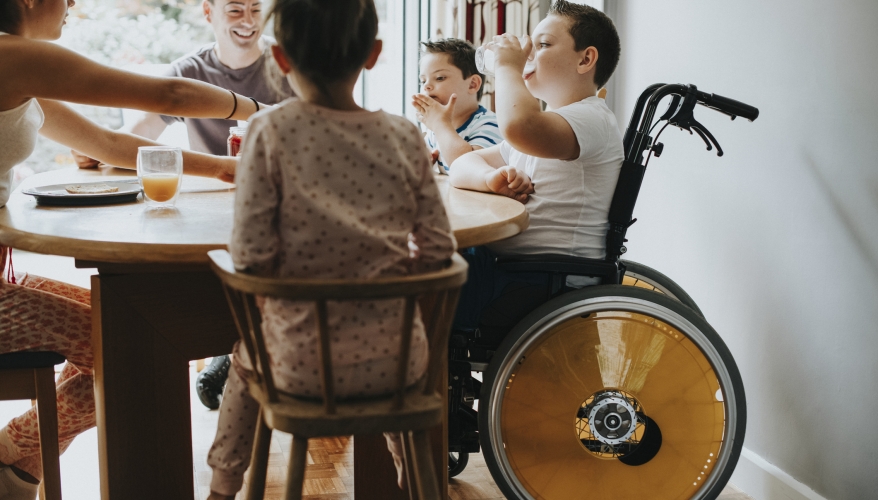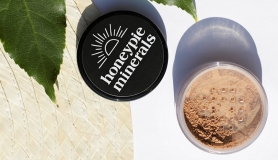Becoming a parent is amazing. Watching a child grow and develop is something to be in awe of. It is awesome. This is true. Parenting can also be messy, confusing and leave us wondering if we’re cut out for the job at all. That perhaps someone else would be more suitable or qualified for the undertaking now that we fully understand the job description. Thank goodness for self-compassion.
In essence, compassion is an awareness of suffering with a desire to alleviate it. So self-compassion is having that awareness and desire for ourselves. Holding ourselves in warm regard and being supportive in difficult times. More often though as parents it can be easy to slip into self-critical mode. The little but persistent voice of judgement giving a running commentary on how every micro movement and syllable that we’re emitting is indeed the wrong one. That’s exhausting and goes no way to improving any situation. Self-compassion can be a balm that soothes us in the “hot” moments and also a support throughout the daily task of doing our best as parents.
Dr Kristin Neff, self-compassion expert and author of the book Self Compassion, outlines three components to the practice. They are self-kindness, common humanity and mindfulness. As a parent this can be being gentle with ourselves, understanding that sometimes parenting is difficult….for everyone, and noticing the difficulties and emotions as they
arise.
She says that while being compassionate to ourselves is not about making difficult emotions go away, ‘often what happens is the emotion lessens in intensity’ and so, ‘it can be worked with more easily’. And though there is no data at present to suggest that being self-compassionate as a parent affects our children, anecdotal evidence would suggest that this may be the case. Dr Neff found in her own experience, ‘when I was in a self-compassionate state of mind Rowan would calm down….when I was in a self-critical, agitated state of mind he would ramp up,’ and concluded, ‘the relationship seemed pretty direct’. She also says that, ‘parents with self-compassion experience less parental stress’.
Anne-Marie became aware of the concept of being compassionate to herself 17 years ago while working on a 12 step programme for alcoholics anonymous. She noticed that as she developed kindness towards herself, it had a, ‘knock on effect’ on her children’s behaviour. ‘Instead of things spiraling out of control, I was more understanding toward the needs of my children in the present moment. Situations arising were more manageable and fluid’. She also found that taking care of herself this way on a daily basis improved her mood and stress levels. ‘The daily practice of self-compassion led to feelings of happiness and fulfillment. Practicing techniques of mindfulness prevented stress from escalating and over time reduced stress considerably’.
So there are good reasons to be gentle and kind to ourselves as we navigate our way through experiences we’ve had little or no training for. Having this understanding can reduce stress and improve relationships. If a friend were in the same situation we would most likely offer support, kindness, reassurance and encouragement. And yet we rarely do this for ourselves. Why is this?
One of the reasons may be the cultural blocks and misconceptions around being self-compassionate. It can be perceived as a sign of weakness. Dr Neff says, ‘whenever I talk about self-compassion I always try to address those misconceptions up front’. She states that research actually shows it as, ‘a source of strength and coping and
resilience’.
Michelle Cree is the author of the book The Compassionate Mind Approach to Postnatal Depression. She explains a two-part approach to dealing with the misconception that self-compassion is a sign of weakness. Firstly, ask yourself, ‘to be able to really go in and help somebody with their suffering, what kind of person do you need to be?’ This takes, she says, ‘guts’, ‘courage’, ‘strength’ and ‘wisdom’. Secondly, Michelle suggests a direct experience of the situation by sitting with the struggle and saying, ‘OK, let’s have a look at whether it’s weak or strong’. Exploring in the moment the effects of being self-critical and self-compassionate.
Another reason we may have such a difficult time interacting with ourselves in this way is simply because we weren’t taught. The concept may make sense but we have no knowledge of how to be compassionate to ourselves.
Dr Neff says there are, ‘many access points to self-compassion’, and she suggests taking, ‘self-compassion breaks’. trying to carve out some space, whether physical or internal, is important in difficult situations. In one instance when she was having a difficult time with her son she recalls giving, ‘a little bit of my energy to him to make sure he was safe’, and then, ‘flooded most of my energy and attention on myself….until I had the stable footing available to give him more of my attention and energy’.
Michelle Cree says it’s about, ‘starting to move from old brain, threat system to much more frontal lobe…...if you can, stop and give yourself some space and do what you need to do to switch systems’. In this way a different part of the brain is brought online that can problem solve.
While taking the break Michelle suggests moving your body into a, ‘compassionate self stance….upright, open, very grounded’.
Once some space has been established, Dr Neff suggests, ‘bringing awareness to the fact that you’re having the difficult emotion…then you can soothe and comfort yourself,’ and ‘say friendly supportive things to yourself that you would say to a good friend’.
Anne-Marie’s children are now 18 and 22, and she remembers that when she was in the midst of a difficult situation the phrase, ‘“Slow Down” spoken internally helped me to become centered and in the moment’.
Michelle highlights that in these moments, ‘the tone of that voice’, is key. Warmth is a key attribute of compassion and is a key component in the antidote to self-criticism.
So carving out a little space, soothing, comforting and encouraging yourself in a tone that is warm can, with practice, help in moments of heightened emotion. But what if in that moment this doesn’t all go according to plan? Michelle suggests, ‘going back and repairing from your compassionate self’. We all get it wrong at times and feel guilty but Michelle says guilt comes from the ‘soothing system’, part of our brain and is about, ‘just making sure that I’m not harming somebody and if I have I repair it’.
Parenting is beautiful and messy and everything in between. We are not always sure if what we are doing is right. But as Dr Neff points out, ‘the fact is the more supportive people are of themselves the more inner strength they have to deal with challenges’. So being on our own team and practicing self-compassion can only bring benefits to our relationship with ourselves and with our children. And it’s a wonderful gift to pass on.
Nina Armstrong is a singer/songwriter and writer who loves books, singing and playing guitar. She has performed live on stage and radio, has grade 6 in Musical Theatre and has trained in Yoga and NLP. She lives in Northern Ireland with her son. www.ninaarmstrong.com






